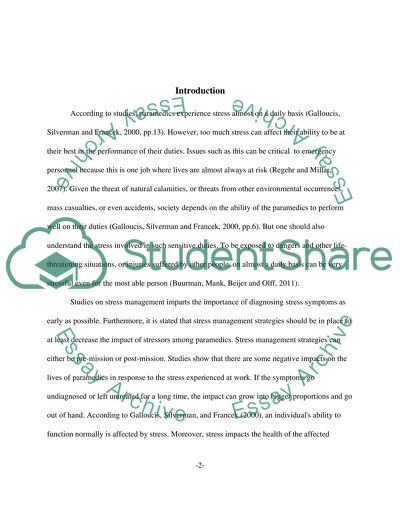Cite this document
(“How to handle stress as a paramedic Essay Example | Topics and Well Written Essays - 2750 words”, n.d.)
Retrieved from https://studentshare.org/health-sciences-medicine/1399279-how-to-handle-stress-as-a-paramedic
Retrieved from https://studentshare.org/health-sciences-medicine/1399279-how-to-handle-stress-as-a-paramedic
(How to Handle Stress As a Paramedic Essay Example | Topics and Well Written Essays - 2750 Words)
https://studentshare.org/health-sciences-medicine/1399279-how-to-handle-stress-as-a-paramedic.
https://studentshare.org/health-sciences-medicine/1399279-how-to-handle-stress-as-a-paramedic.
“How to Handle Stress As a Paramedic Essay Example | Topics and Well Written Essays - 2750 Words”, n.d. https://studentshare.org/health-sciences-medicine/1399279-how-to-handle-stress-as-a-paramedic.


